TRIZ combines an organized, systematic method of problem-solving with analysis and forecasting techniques derived from the study of patterns of invention in global patent literature. The development and improvement of products and technologies in accordance with TRIZ are guided by the laws of technical systems evolution. Its development, by Soviet inventor and science-fiction author Genrich Altshuller and his colleagues, began in 1946. In English, TRIZ is typically rendered as the theory of inventive problem solving.
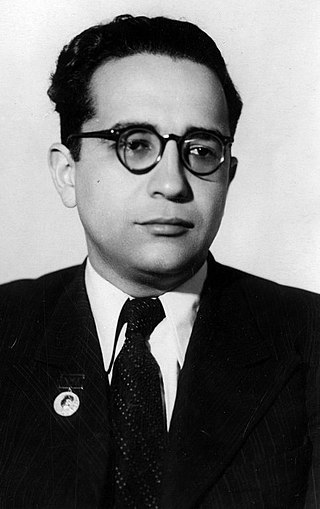
Gara Abulfaz oghlu Garayev, also spelled as Qara Qarayev or Kara Karayev, was a prominent Soviet Azerbaijani composer. Garayev wrote nearly 110 musical pieces, including ballets, operas, symphonic and chamber pieces, solos for piano, cantatas, songs, and marches, and rose to prominence not only in the Azerbaijan SSR, but also in the rest of the Soviet Union and worldwide.

Genrikh Samoilovich Lyushkov was an officer in the Soviet secret police and its highest-ranking defector. A high-ranking officer of the NKVD, he played a role in perpetrating Stalin's Great Purge. When, in 1938, he suspected he would soon fall victim to the purge, he fled to Japan. Thereafter, he acted as a major source of intelligence for Imperial Japan about the Soviet Union. At the end of World War II, he was killed by the Japanese in order to prevent him from falling back into Soviet hands.

Olonets is a town and the administrative center of Olonetsky District of the Republic of Karelia, Russia, located on the Olonka River to the east of Lake Ladoga.
The laws of technical systems evolution are the most general evolution trends for technical systems discovered by TRIZ author G. S. Altshuller after reviewing thousands USSR invention authorship certificates and foreign patent abstracts.
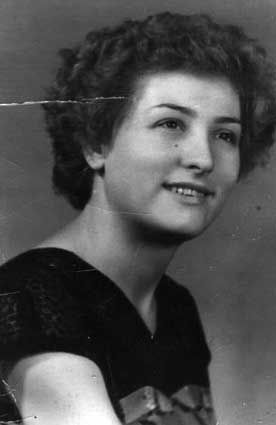
Valentina Nikolayevna Zhuravlyova was a Soviet science fiction writer born in Baku, Azerbaijan.

Samad Vurgun was an Azerbaijani and Soviet poet, dramatist, public figure, first People's Artist of the Azerbaijan SSR (1943), academician of Azerbaijan National Academy of Sciences (1945), laureate of two Stalin Prizes of second degree, and member of the Communist Party of the Soviet Union from 1940.

Yakov Saulovich Agranov was the first chief of the Soviet Main Directorate of State Security and a deputy of NKVD chief Genrikh Yagoda. He is known as one of main organizers of Soviet political repressions and Stalinist show trials in the 1920s and 1930s. He fabricated the "Tagantsev conspiracy" case and the Moscow trials, including the Trial of the Twenty One and the Industrial Party Trial, as well as mass arrests and executions in Saint Petersburg during Joseph Stalin's Great Purge.
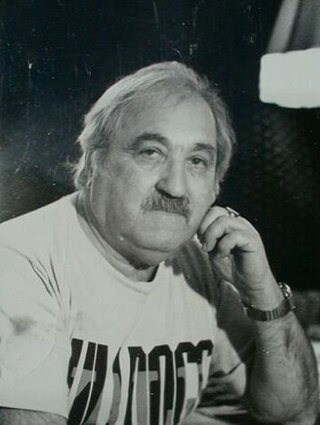
Genrikh Sapgir was a Russian poet and fiction writer of Jewish descent.

Mustafa Agha bey oglu Topchubashov was an Azerbaijani surgeon, Hero of Socialist Labor, Stalin Prize winner, and recipient of the Order of Lenin.
Genrikh is a masculine Russian given name derived from the Germanic name Heinrich, a variant of Henry. Notable people with the name include:

Mikayil Alasger oghlu Huseynov was a Soviet Azerbaijani architect and historian of architecture. He was People's Architect of the USSR (1970), Professor (1939); Academician of the Academy of Sciences of the USSR (1945), full member of the Academy of Architecture of the USSR (1985), Hero of Socialist Labour (1985), laureate of the Second Class State Stalin Prize (1941), member of England's and Ireland's Royal Society of Asians.
Systematic Inventive Thinking (SIT) is a thinking method developed in Israel in the mid-1990s. Derived from Genrich Altshuller's TRIZ engineering discipline, SIT is a practical approach to creativity, innovation and problem solving, which has become a well known methodology for innovation. At the heart of SIT's method is one core idea adopted from Genrich Altshuller's TRIZ which is also known as Theory of Inventive Problem Solving (TIPS): that inventive solutions share common patterns. Focusing not on what makes inventive solutions different – but on what they share in common – is core to SIT's approach.

Genrikh Osipovich Graftio was a Russian and Soviet engineer credited as a pioneer of the hydroelectric station construction, as one of the founders of the GOELRO plan, and notable for the construction of the first hydroelectric stations in the Soviet Union, the Volkhov Hydroelectric Station in Volkhov and the Lower Svir Hydroelectric Station in Svirstroy.

Petrozavodsk State University (PetrSU) is a classical university in Petrozavodsk, Republic of Karelia, Russia. It was founded in 1940 as the Karelian-Finnish University and was renamed in 1956 to Petrozavodsk State University. The rector of Petrozavodsk State University is Prof. Anatoly V. Voronin.
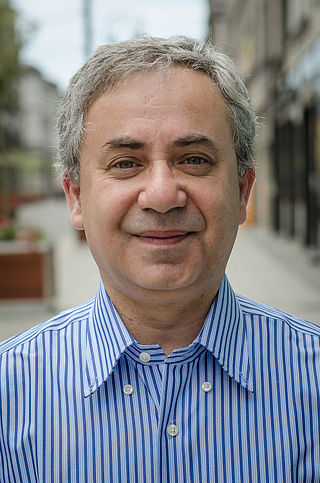
Greg Yezersky is an American engineer, consultant and university lecturer, the creator of the General Theory of Innovation (GTI).

Genrikh Vasilyevich Novozhilov was a Soviet and Russian aircraft designer. He was a key designer of multiple Ilyushin passenger aircraft including the Il-18, Il-62, Il-76, and Il-96.
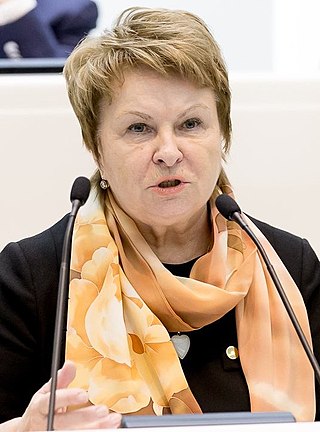
Valentina Nikolayevna Pivnenko is a Russian United Russia politician and states person. She has served in the Russian State Duma as a representative for the Karelia constituency since December 1999, firstly as an independent candidate before joining United Russia in 2000. Before that, Pivnenko was an elected member of the House of Representatives of the Legislative Assembly of the Republic of Karelia as a representative of the Prionezhsky constituency between April 1994 and February 2000. She served two terms in the Russian Federation Council as a senator for the Republic of Karelia from 1996 to 2000. Pivnenko has received many accolades during her political career.
Patrick M. Gunkel was an American futurist and independent scholar best known as the originator of "ideonomy", a combinatorial "science of ideas". Although he never completed a degree, his career included positions at the Hudson Institute, MIT, and the University of Texas.














